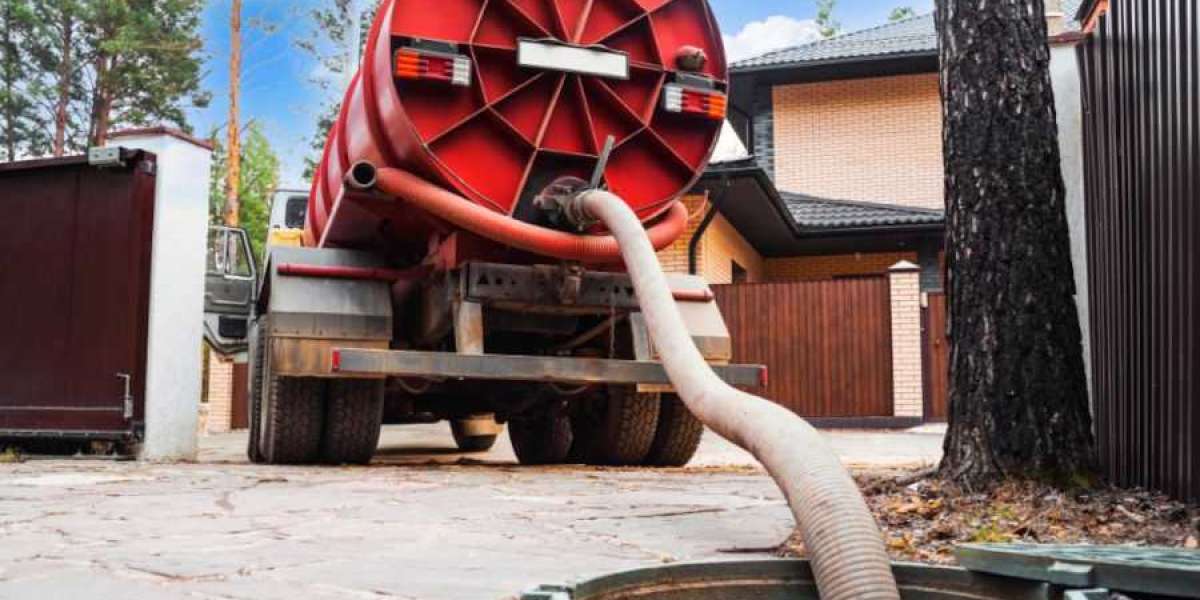Emergency Septic Pumping – What You Need to Know Before It's Too Late
A septic system emergency can happen when you least expect it. A clogged or overflowing tank can lead to serious property damage, foul odors, and even health hazards. When your septic system backs up, you need a fast solution. That’s where emergency septic pumping comes in.
In this guide, we’ll discuss why septic emergencies happen, how to recognize warning signs, and why calling a professional is the best way to avoid bigger problems.
Why Septic Emergencies Happen
Septic tanks need routine maintenance to function properly. When neglected, they can fill up with waste, causing blockages and backups. Several factors contribute to septic emergencies:
Lack of Regular Pumping
Septic tanks need to be pumped every 3 to 5 years, depending on usage. Skipping maintenance can cause solids to build up, leading to system failure. When too much solid waste accumulates, it reduces the available space for liquid waste, eventually causing the tank to overflow or clog the drain field. A neglected system can lead to costly repairs and even a complete system replacement.
Clogs and Blockages
Flushing non-biodegradable items like wipes, paper towels, or grease can clog the system. Even excessive toilet paper use can create blockages. Once these materials accumulate, they prevent wastewater from flowing freely, causing backups into sinks, bathtubs, and even toilets. In severe cases, untreated sewage can flood your property, posing serious health risks.
Heavy Rainfall or Flooding
Excess water from storms can saturate the drain field, preventing the septic system from properly dispersing waste. This can cause backups inside the home. When the soil around the drain field becomes waterlogged, it cannot absorb wastewater efficiently, leading to an overflow of sewage back into your home’s plumbing system.
Tree Root Intrusion
Tree roots can grow into the septic lines, causing cracks, blockages, and leaks. This often leads to slow drainage and unpleasant odors. Tree roots naturally seek out moisture, and if they infiltrate your pipes, they can cause extensive damage. Once inside, they expand, creating major blockages that require costly repairs.
Broken or Damaged Components
Septic tanks, pipes, and drain fields can deteriorate over time. A damaged system can stop working properly, leading to immediate pumping needs. Cracked or collapsed pipes can cause leaks, allowing waste to seep into the surrounding soil and groundwater, and creating an environmental hazard.
Warning Signs You Need Emergency Septic Pumping
Septic system failures don’t always happen overnight. There are clear warning signs that indicate your tank is in trouble. If you notice any of these issues, call for emergency septic pumping right away:
Slow Drains
Water draining slowly from sinks, bathtubs, or toilets is a sign of a full or clogged tank. If plunging or drain cleaners don’t fix the issue, your septic tank may be overflowing.
Sewage Backup
Wastewater backing up into your home is a serious problem that requires immediate attention. This happens when the system can’t process waste quickly enough, causing raw sewage to return through household drains.
Strong Odors
A foul smell around your yard or drains can indicate an overflowing septic tank. The gases released from decomposing waste produce a rotten egg smell, which can be dangerous if inhaled for long periods.
Pooling Water
Unexplained wet spots or standing water near the septic tank or drain field suggest a serious leak. This means wastewater isn’t being absorbed properly, leading to system failure.
Gurgling Sounds
Strange noises from toilets or drains mean there’s a blockage in the pipes. This happens when trapped air struggles to escape due to backed-up waste, signaling a clogged or full septic system.
Ignoring these warning signs can lead to costly repairs and environmental contamination. Acting fast can save you from a major disaster.
Why You Should Call a Professional for Emergency Septic Pumping
When your septic system overflows, you need an experienced technician to handle the situation properly. Here’s why professional septic pumping is the best solution:
Quick and Effective Service
Professionals use high-powered vacuum trucks to remove waste quickly, preventing further damage to your home. These trucks efficiently extract solid and liquid waste, restoring your system’s functionality within hours.
Proper Waste Disposal
Septic waste must be handled and disposed of according to local regulations. A licensed company ensures everything is done safely and legally. Professionals transport the waste to designated treatment facilities, preventing environmental contamination.
Prevents Further Damage
An expert can inspect your system to identify underlying problems, preventing future emergencies. Early detection of damaged pipes or drain field issues can save homeowners thousands of dollars in repairs.
Safe and Hygienic
Handling septic waste yourself can expose you to harmful bacteria. Professionals have the right equipment and safety protocols to do the job correctly. Without protective gear and proper training, direct exposure to waste can lead to severe infections.
24/7 Availability
Septic emergencies don’t wait for business hours. Most companies offer round-the-clock service to handle urgent situations. This means you can get help at any time, preventing the situation from worsening.
How to Prevent Future Septic Emergencies
Routine maintenance is the best way to avoid costly septic problems. Here are some key steps to keep your system in good condition:
Schedule Regular Pumping
Have your septic tank pumped every 3 to 5 years, depending on household size and usage. Routine pumping removes solid waste before it reaches dangerous levels.
Watch What You Flush
Avoid flushing anything other than human waste and toilet paper. Items like wipes, hygiene products, and cooking grease can cause clogs. Even "flushable" wipes don’t break down as quickly as toilet paper.
Conserve Water
Excessive water use can overload the system. Spread out laundry loads, fix leaks, and install water-efficient fixtures. Too much water at once prevents solids from settling, leading to clogs.
Protect the Drain Field
Avoid parking vehicles or planting trees near the drain field. Heavyweight and roots can damage pipes. Compacting the soil reduces its ability to absorb wastewater efficiently.
Schedule Routine Inspections
A professional inspection can catch small issues before they become major problems. A thorough check-up ensures pipes, tanks, and the drain field are in top condition.
How to Choose the Right Emergency Septic Pumping Service
Not all septic services are the same. When searching for an emergency pumping company, consider the following factors:
- 24/7 Availability: Choose a company that offers round-the-clock service for urgent situations. Emergencies can happen at any time and quick response matters.
- Licensed and Insured: Make sure the company is certified and follows local health and safety regulations. This ensures they meet industry standards.
- Experience and Reputation: Look for customer reviews and testimonials to ensure reliable service. A well-reviewed company is more likely to provide quality work.
- Transparent Pricing: Ask for a clear price estimate before scheduling service to avoid hidden fees. Knowing costs upfront helps you plan your budget.
Conclusion
Septic system failures can happen without warning. Knowing the warning signs and acting quickly can save you from costly repairs and health hazards. Emergency septic pumping provides a fast and reliable solution to prevent further damage.
Routine maintenance and responsible usage can help extend the life of your septic system. However, when an emergency arises, calling a professional is the best course of action.
If you need emergency septic pumping, don’t wait until the problem gets worse. Contact a trusted professional now for fast and reliable service to keep your system running smoothly!



